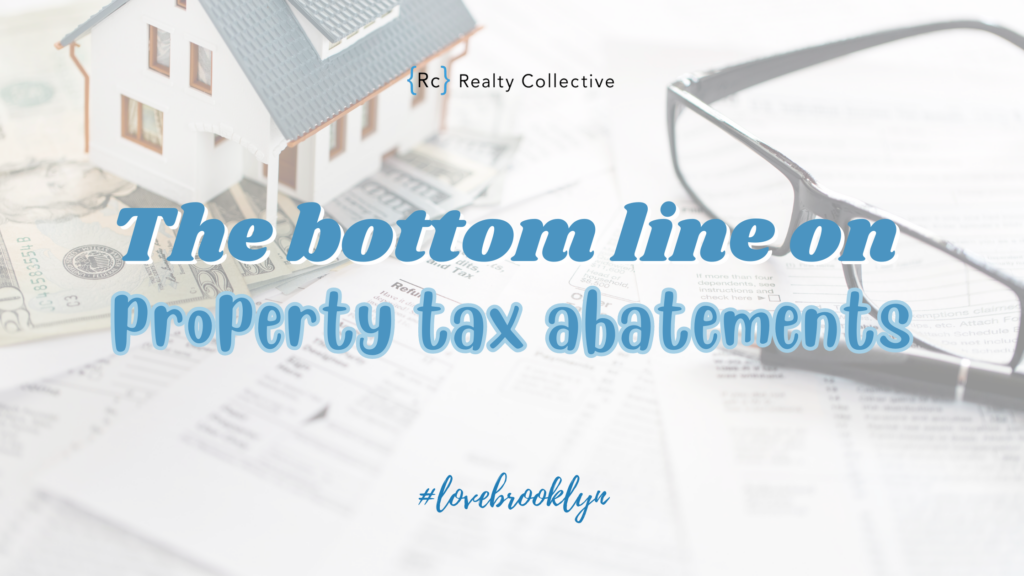The bottom line on property tax abatements
Oct 26, 2023

Let’s talk tax abatements in New York City. It may not be the most exciting topic, but it’s important to understand how it affects the housing market and buyers like you.
Basically, a tax abatement is a break on property taxes for buildings or apartments. It sounds simple, but in reality, it’s a bit more complicated. There are different types of abatements given to buildings for various reasons. One of the most well-known was the 421a abatement — which expired in 2022. This abatement gave developers and individual owners a significant tax break in exchange for including affordable housing in their projects (you may have heard of “80/20” buildings, which were made possible by this abatement and included 20% of homes set aside for affordable rentals).
Tax abatement programs have a significant impact on what and where developers can afford to build in New York City. This, in turn, affects the housing market in different neighborhoods. Without these incentives, there could be a slowdown in new housing construction, which is a concern considering the constant influx of people.
Now, let’s talk about how tax abatements affect typical buyers in New York City. If you’re a renter, the 421a abatement doesn’t have much impact unless you’re lucky enough to secure one of the subsidized rentals in an 80/20 building. However, there’s another abatement called the J-51 tax abatement that you should know about. Landlords receive this abatement for major renovations to a building. While it won’t lower your rent directly, there’s an important rule that comes with it: as long as your landlord is receiving a J-51 tax abatement, your apartment should fall under rent-stabilization. This can be beneficial for renters.
If you’re buying into a building with an abatement, it can mean significant savings on your monthly costs. For example, at the Edge in Williamsburg, which has a 25-year tax abatement, the taxes are only $40 per month, compared to $500 per month without the abatement. Generally, tax abatements last for a set amount of time, with taxes gradually increasing over that period.
Lower taxes can make apartments with abatements more appealing, which can drive up their asking prices. On the other hand, as the abatement nears its end, sellers might have to lower their asking prices to attract buyers who know that their monthly costs will increase.
It’s crucial for potential buyers to check when a building’s abatement began and how long it will last. This information can be obtained during the due diligence research conducted by your attorney. Additionally, co-op and condo owners who use their apartment as their primary residence, don’t own too many properties, and aren’t receiving any other abatement can apply for the Cooperative and Condominium Tax Abatement. The amount of reduction in property taxes will vary based on the assessed value of the apartment.
When considering a property tax abatement, there are a few important things to keep in mind:
- Many new buildings offer abatements that last from 5 to 25 years, during which you either owe no property tax or only a fraction of it each year.
- However, it’s crucial to understand the phasing-in schedule, as taxes may increase gradually over time. This rapid phase-in can be a financial shock if you’re not prepared.
- It’s also important to have a realistic understanding of your actual tax burden once the abatement expires. The high tax number mentioned in the offering plan is based on current tax rates and assessed property values. However, these numbers are likely to be much higher in the future as tax rates and property values continue to rise.
Lastly, don’t assume that you’ll sell your property in the event your income can’t keep up with the taxes. Many others may have the same idea, and the competition could make it harder to sell at the desired price. As a general rule, it’s wise not to overspend just because you have an abatement. The bottom line? It’s often best to buy an apartment that you can afford even without the abatement.












